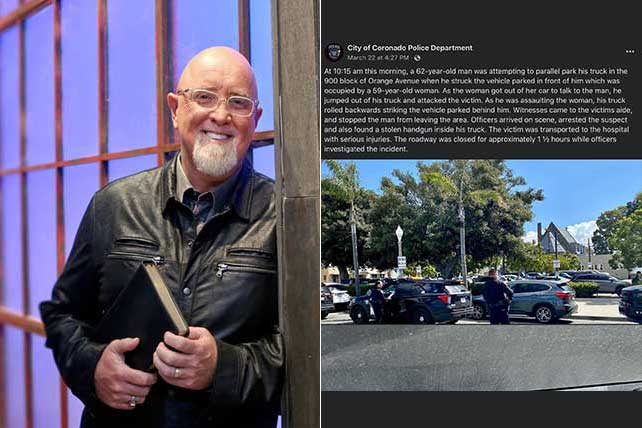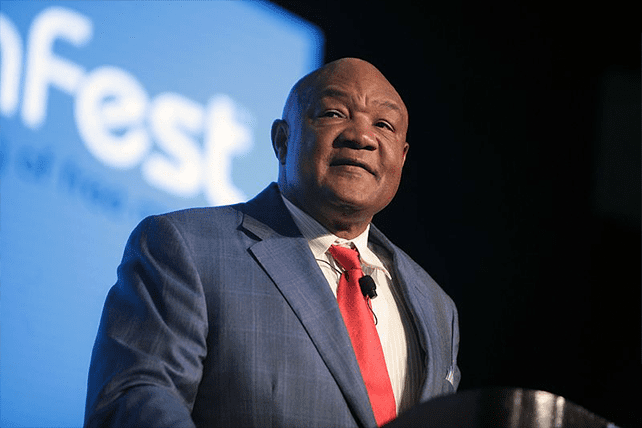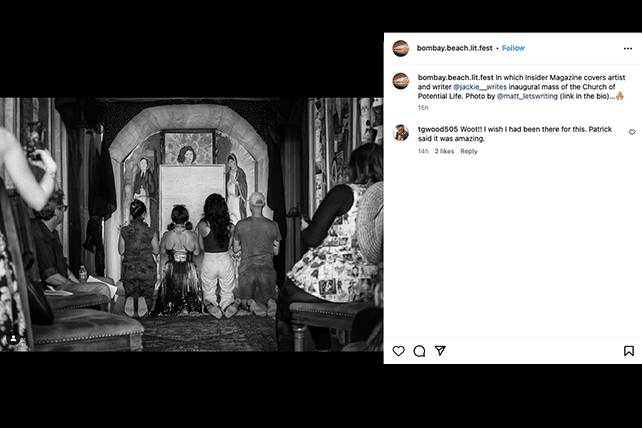(RNS) — While Catholicism continues to lose more Latinos than any other religious group, it still remains the largest faith of U.S. Hispanic adults, even as an increasing number identify as religiously unaffiliated, a new Pew Research Center survey found.
Former Catholics have cited the clergy sexual abuse scandal, a lack of LGBTQ inclusivity and the rule that women can’t be priests as reasons for leaving the church, with Pew finding the share of Latinos identifying as Catholic dropping from 67% in 2010 to 43% in 2022.
The Pew survey, which released its report on Thursday (April 13), surveyed 3,029 U.S. Latino adults in August last year and asked respondents about their religious upbringing to learn “how that compares with their current religious identity.”
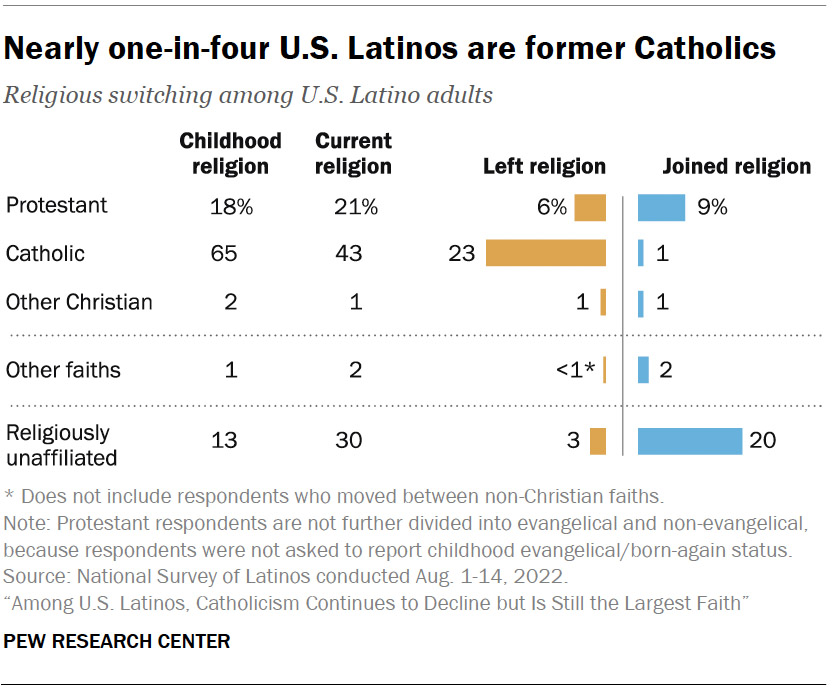
“Nearly one-in-four U.S. Latinos are former Catholics” Graphic courtesy of Pew Research Center
Among the 65% who said they were raised Catholic, 23% said they no longer identified as such. “They’ve left the Catholic church, but they now identify with some other faith or no faith at all. That’s a pretty steep decline,” Pew researcher Besheer Mohamed told Religion News Service.
Still, Latinos remain about twice as likely as U.S. adults overall to identify as Catholic, and considerably less likely to be Protestant. Meanwhile, the share of Latinos who say they are atheist, agnostic or “nothing in particular” stands at 30%, up from 10% in 2010 and from 18% a decade ago in 2013, according to Pew.
RELATED: Survey: Catholic Biblical Literalists More Likely to Have Anti-Jewish Views
Additionally, U.S.-born Latinos are less likely to be Catholic (36%) and more likely to be unaffiliated (39%) than older Hispanics and those born outside America.
Yes, the number of religiously unaffiliated Latinos is on the rise, but as Mohamed noted, overall “it’s still a minority,” considering the 70% who continue to identify with a religion. Beyond that, even the unaffiliated are not “completely secular,” Mohamed said. The Pew study found that a substantial minority (29%) of Latinos who don’t have a religion continue to pray at least weekly.
Protestants are the second-largest faith group after Catholics, accounting for 21% of Hispanic adults, a share Pew reports has been relatively stable since 2010. During this time, Latino Protestants have been more likely to identify as evangelical or born-again (15%) than to say they are not (6%), according to Pew.
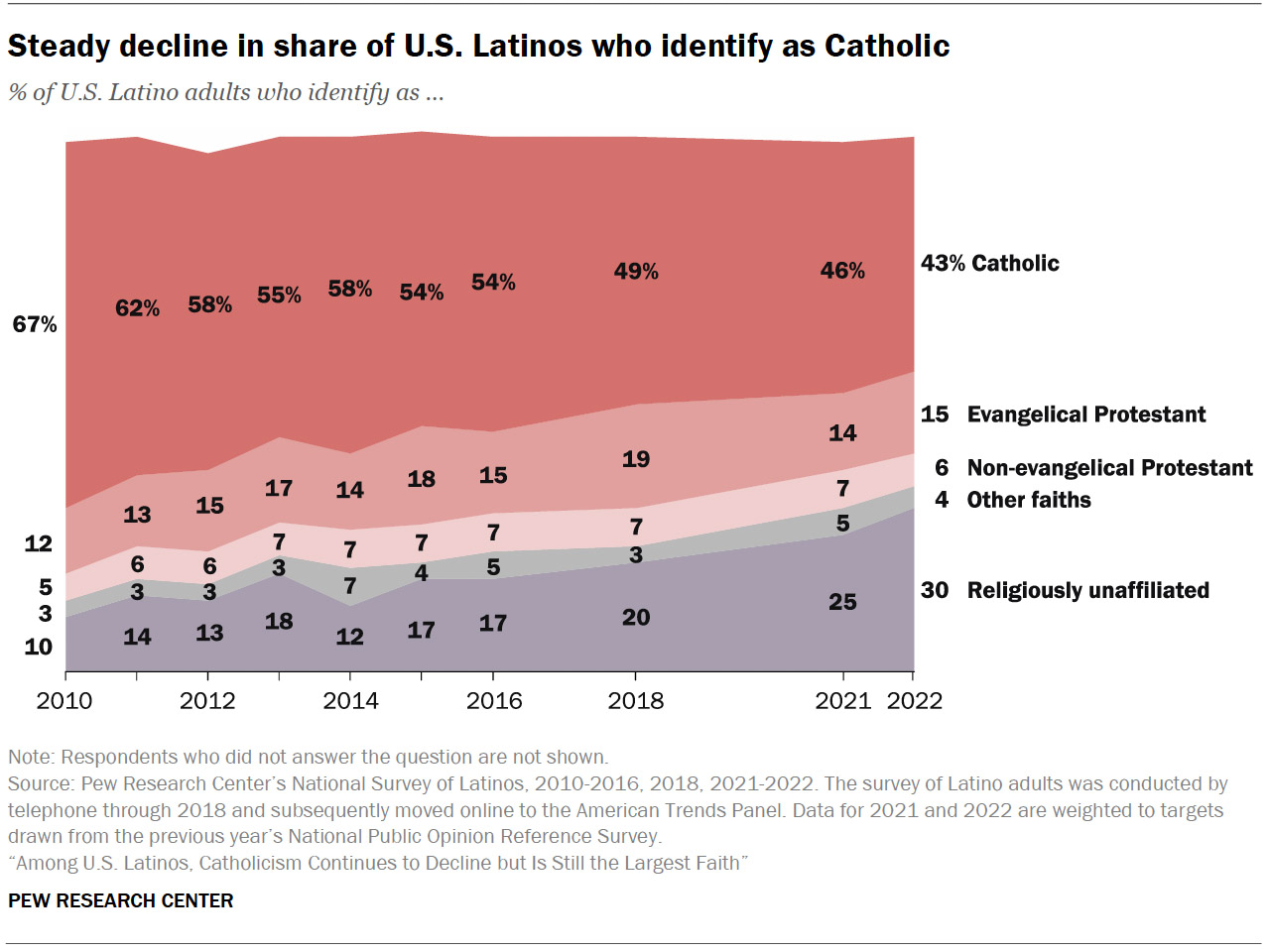
“Steady decline in share of U.S. Latinos who identify as Catholic” Graphic courtesy of Pew Research Center
Religion has been referred to as the “largest demographic divider among Hispanic Americans,” according to a 2020 analysis from the Public Religion Research Institute, which found that Latino Protestants are more conservative, Republican and supportive of former President Donald Trump than Latinos who are Catholic or religiously unaffiliated.
With U.S. Latinos regarded as the fastest-growing racial and ethnic group, Republicans, conservative pastors and right-wing organizations have centered faith in their outreach to Latino voters, particularly those who identify as evangelical.
Pew found that 28% of Latino Republicans say they’re evangelical Protestants, compared with the 10% of Latino Democrats who say the same. Latino immigrants are also more likely than U.S.-born Latinos to be evangelical (19% vs. 12%). Evangelicalism was found to be particularly widespread among Latinos with Central American origins.
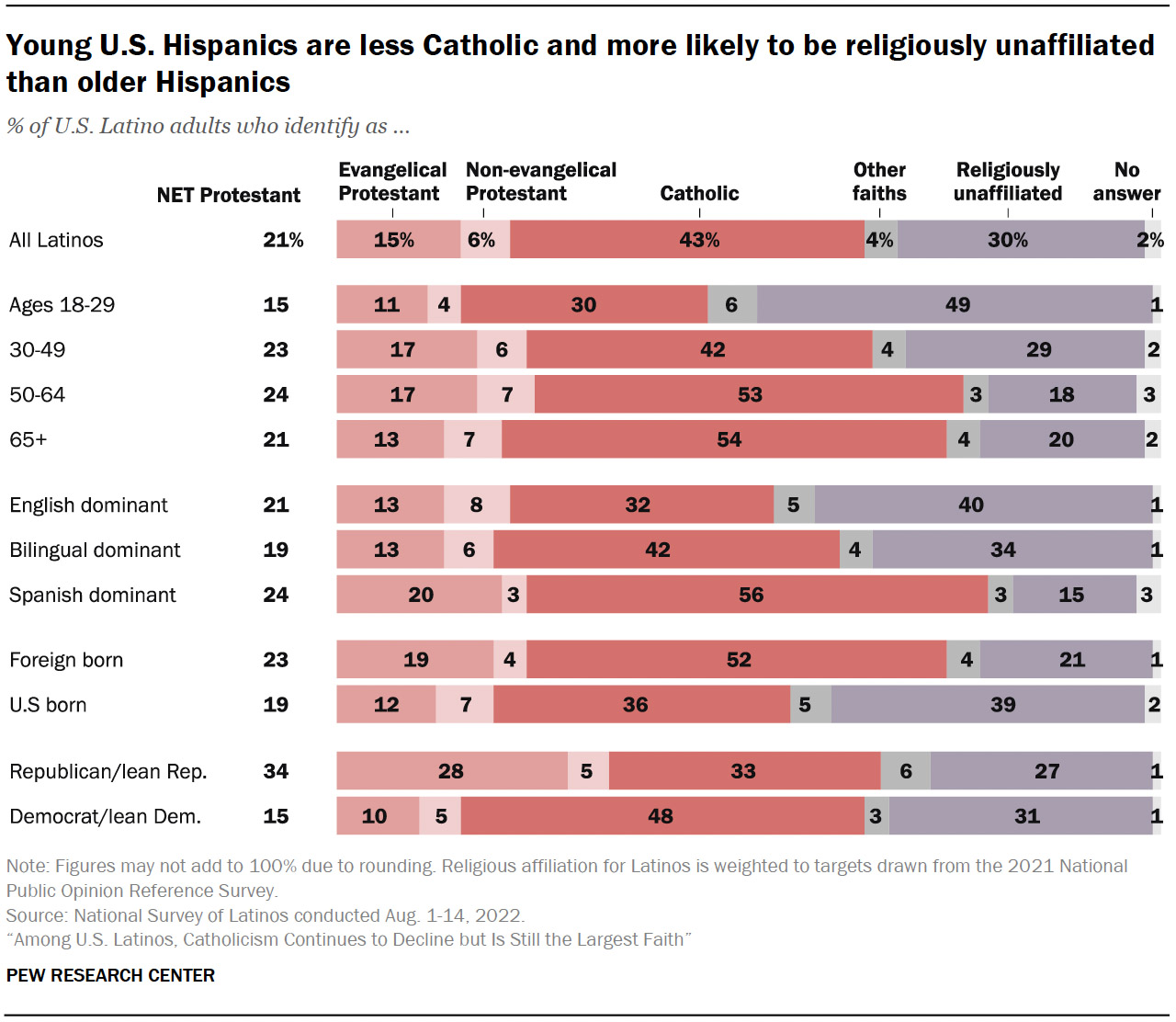
“Young U.S. Hispanics are less Catholic and more likely to be religiously unaffiliated than older Hispanics” Graphic courtesy of Pew Research Center
In the survey, about 31% of Central Americans identified as evangelical Protestants, a higher share than among Puerto Ricans (15%) and Mexicans (12%).
When looking at Latino evangelical Protestants, half identified with the Republican Party or said they were independents who lean toward the GOP, with 44% identifying as Democrats or Democratic-leaning independents.
Among Latino Catholics, in contrast, 21% said they were Republicans, while 72% identified as Democrats. Religiously unaffiliated Latinos are also heavily Democratic (66% Democratic vs. 24% Republican), according to Pew.
Jonathan Calvillo, an assistant professor of Latinx studies at Emory’s Candler School of Theology, previously told RNS that “religious nones will likely support more progressive political positions, while evangelicals will lean more conservatively.”
Calvillo noted that even as Latino Protestants don’t always lean Republican, the voices that speak for them are often more conservative, leaving him to wonder: “To what extent are Latino Protestants being pushed in this direction?”
This article originally appeared here.
 In our increasingly fractured world that’s just amped up with reactivity, how can we as pastors and ministry leaders create a calming presence in our churches and in our communities? In this week’s conversation on FrontStage BackStage, host Jason Daye is joined by Rich Villodas, lead pastor of New Life Fellowship in Queens, New York. Rich has written several books, including “Good and Beautiful and Kind.” Together, Rich and Jason explore nurturing a culture in our churches that provides an alternative to the mean-spiritedness and divisiveness that we see in the world all around us. Rich also shares some personal practices, including five questions, that we can reflect upon in our own lives as pastors and ministry leaders that can help us overcome reactivity and engage in conversations with people who might not believe as we do.
In our increasingly fractured world that’s just amped up with reactivity, how can we as pastors and ministry leaders create a calming presence in our churches and in our communities? In this week’s conversation on FrontStage BackStage, host Jason Daye is joined by Rich Villodas, lead pastor of New Life Fellowship in Queens, New York. Rich has written several books, including “Good and Beautiful and Kind.” Together, Rich and Jason explore nurturing a culture in our churches that provides an alternative to the mean-spiritedness and divisiveness that we see in the world all around us. Rich also shares some personal practices, including five questions, that we can reflect upon in our own lives as pastors and ministry leaders that can help us overcome reactivity and engage in conversations with people who might not believe as we do.










